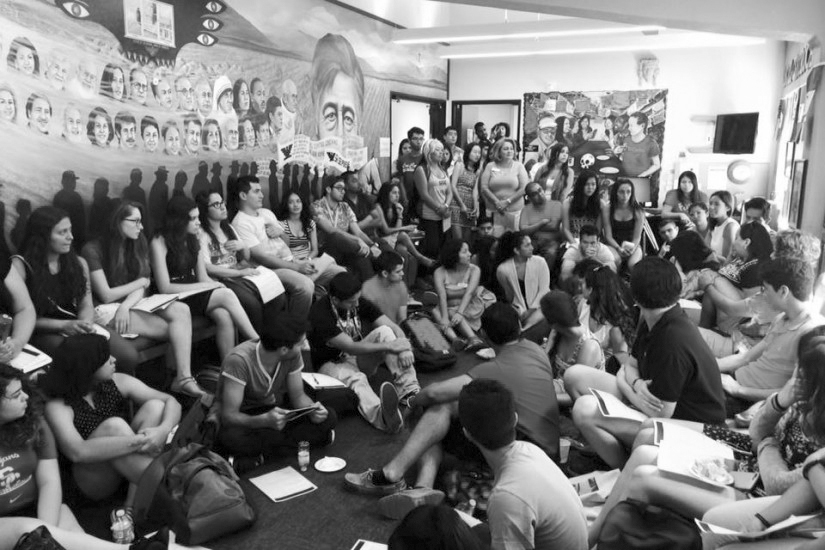El Centro Chicano provides resources for Latinx students
On a Wednesday morning, Cameron Casillas sits in the quaint, yellow kitchen of the El Centro Chicano office in the Student Union Building. His face is lit up from the glow of his laptop screen and a microwave whirs behind him as he types.

El Centro Chicano offers tutoring, networking opportunities, student advocacy, personal support and other resources for members of the Latinx and Chicanx communities at USC. Photo from USC website.
“Honestly, I first started coming because there’s a microwave,” said Casillas, a senior majoring in human biology. “Sometimes it’s kind of hard to take food from home because I commute.”
When Casillas transferred to USC two years ago, El Centro Chicano was one of the first communities that made him feel at home, he said.
“I’m kind of a quiet person, normally,” Casillas said. “But here, I found several people who were very, very easy to approach me, to make me feel welcome, especially as a transfer student. So that helped me a lot to fit in and get integrated here.”
El Centro Chicano at USC was founded in 1972 during a time when the Chicano population was rapidly growing in South Los Angeles, as well as in the pool of USC applicants. Today, El Centro Chicano offers student advocacy, tutoring, networking opportunities, personal support and assistance for Latinx student groups all with the primary goal of empowering the Chicanx and Latinx community on and off-campus.
“We are a place that orients our students and makes them aware of so many amazing resources at USC from offices, departments, programs, club/organizations, faculty, staff, fellow undergrad and graduate peers,” Billy Vela, the director of El Centro, said in an email to the Daily Trojan. “El Centro Chicano is also a place that welcomes from our very diverse community and we love seeing students who are not Chicanx or Latinx who have found a home here too.”
Victoria Perez, a sophomore majoring in cinema and media studies, said she first learned about El Centro when she was a freshman living on the Latino floor of her residence hall. Earlier that year, she’d attended an open house held by Vela. This year, as a sophomore at the University, she feels that the El Centro office has quickly grown into a home base for her on campus to get work done.
“[Vela] was really, really understanding in letting us know it’s a safe space and a lot of people are coming from specific neighborhoods and specific backgrounds where we’re just more comfortable around our own people,” Perez said.
In an effort to broaden the inclusivity of the program, the Central American Network released a petition on Feb. 12 requesting for the removal of “Chicano” from its name. According to the program’s petition, this request for a name change is not meant to “attack or diminish the Chicano culture or movement,” but rather to continue to uphold the program’s principles of “inclusion, pride and democracy.”
“The current Latinx community on campus consists of people with varied cultural identities, who practice various religions or none at all, who represent all facets of the LGBTQIA+ community, and who may or may not identify as ‘Chicano,’” the petition states.
In response to the petition, Edgar Sanchez, a freshman majoring in computational neuroscience, said that like Perez, he believes that the current program title with the word “Chicano” is a large part of what makes the program special.
“Personally I think that’s what gives this place its identity, so it would be a shame to have that taken off,” Sanchez said. “But I definitely think that no matter what the name is, the people that belong here are the one that make this place.”
